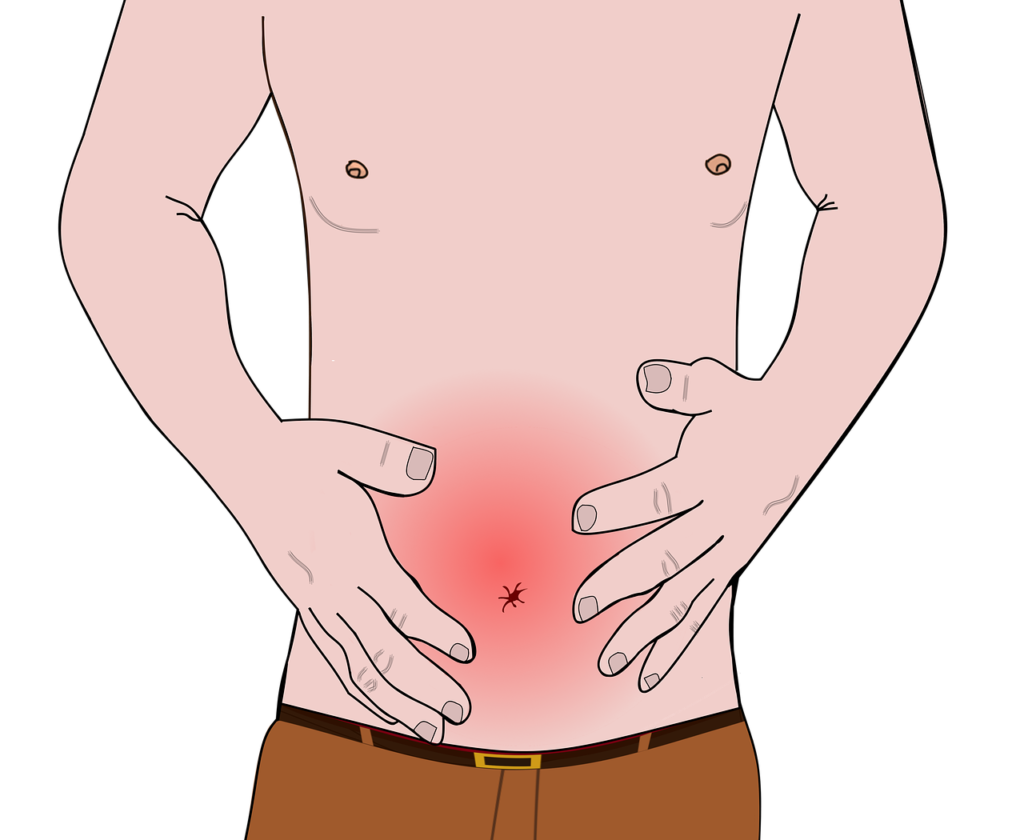Diarrhea
Medically reviewed by A Ras MD. . Last updated on Aug 1, 2022.
What is diarrhea
Diarrhea is the passing of loose or watery stools, usually at least three times in a day. It indicates that there is more water in the stool through active water production by the colon or reduced water absorption.

Types of Diarrhea
- Acute – 14 days or less in duration
- Persistent diarrhea – more than 14 but less than 30 days in duration
- Chronic – greater than 30 days in duration
Causes of diarrhea
There are multiple causes of diarrhea ranging from infection to medications and food poisoning. Some more common causes of diarrhea as or as listed below.¶
Osmotic diarrhea
- Medications: antacids, lactulose, sorbitol
- Disaccharidase deficiency: lactose intolerance
- Factitious diarrhea: magnesium (antacids, laxatives)
Secretory diarrhea
- Hormonally mediated: VIPoma, carcinoid, medullary carcinoma of thyroid (calcitonin), Zollinger-Ellison syndrome (gastrin)
- Factitious diarrhea (laxative abuse); phenolphthalein, cascara, senna
- Villous adenoma
- Bile salt malabsorption (idiopathic, ileal resection; Crohn ileitis; postcholecystectomy)
- Medications
Inflammatory conditions
- Ulcerative colitis
- Crohn disease
- Microscopic colitis
- Malignancy: lymphoma, adenocarcinoma (with obstruction and pseudodiarrhea)
- Radiation enteritis
Medications
- Common offenders: SSRIs, cholinesterase inhibitors,
- NSAIDs, proton pump inhibitors, angiotensin II receptor blockers, metformin, allopurinol
Malabsorption syndromes
- Small bowel mucosal disorders: celiac disease, tropical sprue, Whipple disease, eosinophilic gastroenteritis, small bowel resection (short bowel syndrome), Crohn disease
- Lymphatic obstruction: lymphoma, carcinoid, infectious (tuberculosis, MAI), Kaposi sarcoma, sarcoidosis, retroperitoneal fibrosis
- Pancreatic disease: chronic pancreatitis, pancreatic carcinoma
- Bacterial overgrowth: motility disorders (diabetes, vagotomy), scleroderma, fistulas, small intestinal diverticula
Motility disorders
- Postsurgical: vagotomy, partial gastrectomy, blind loop with bacterial overgrowth
- Systemic disorders: scleroderma, diabetes mellitus, hyperthyroidism
- Irritable bowel syndrome
Chronic infections
- Parasites: Giardia lamblia, Entamoeba histolytica, Strongyloidiasis stercoralis, Capillaria philippinensis
- AIDS-related: Viral: Cytomegalovirus, HIV infection (?); Bacterial: Clostridium difficile, Mycobacterium avium complex; Protozoal: Microsporidia (Enterocytozoon bieneusi), Cryptosporidium, Isospora belli
Symptoms
Diarrhea sufferers typically have bowel movements that are loose and watery. People occasionally pass frequent, little volumes of loose feces with mucous and blood. This condition is far less prevalent. Additional symptoms may include the following:
- Abdominal pain and cramping
- Vomiting
- Fever
- Chills
- Bloody stools
- Lack of bowel control
If too much fluid is lost from the body as a result of frequent vomiting and diarrhea, it can result in dehydration (abnormally low levels of bodily water). Dehydration symptoms include:
- Dry mouth
- Thirst
- Dry eyes
- Infrequent urination
Diagnosis
Acute diarrhea patients rarely need lab tests. If volume depletion is evident (indicated by dark, concentrated urine), a metabolic panel should be performed to screen for hypokalemia or renal failure. The total blood count cannot effectively identify bacterial diarrhea from other causes, although it can indicate severe disease or sequelae. Low platelets may indicate hemolytic-uremic syndrome, and a leukemoid reaction suggests C. difficile infection. High-fever or systemically sick patients need blood cultures.
Prevention
Cleanliness prevents diarrhea. Before eating, preparing meals, and using the bathroom, wash your hands with soap and water. Avoid undercooked meats, raw seafood, and foods left out for hours, which can induce diarrhea. Rare diarrhea may not have a clear cause. If you have recurrent episodes, discover the triggers, such as medicine or food, and avoid them.
Treatment
When symptoms appear, relax and drink clear drinks. Avoid dehydration by drinking water, juice, bouillon, and weak tea. Rehydrate with sports drinks. Caffeine increases water and salt loss, so avoid coffee and soda. Take small sips of drink and ice chips if you have nausea and diarrhea. pjk
Start eating solid foods gradually as you feel better to avoid stomach cramps. Start with soft, starchy foods (cooked cereal, steaming rice, unbuttered bread, and applesauce). Warmth (hot water bottle, warm compress, low-heat electric heating pad) can alleviate stomach cramps. Bismuth subsalicylate (Pepto-Bismol) or loperamide are over-the-counter options (Imodium).
Always contact your physician if conservative therapy does not improve his symptoms
Prognosis
In between three and seven days, the vast majority of people make a full recovery from the symptoms of acute diarrhea.
